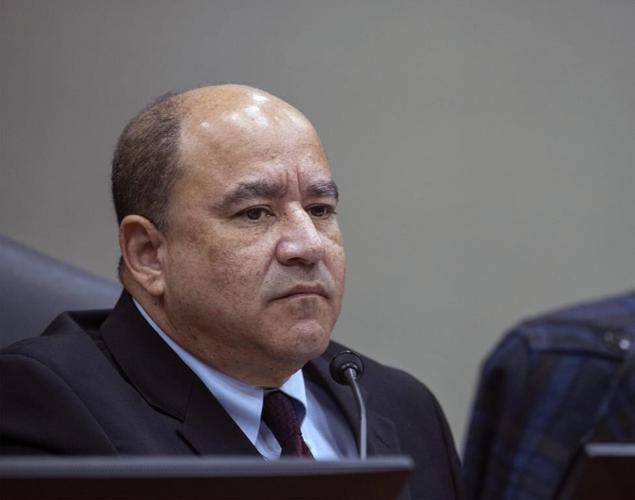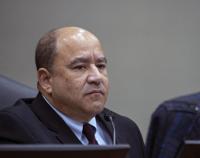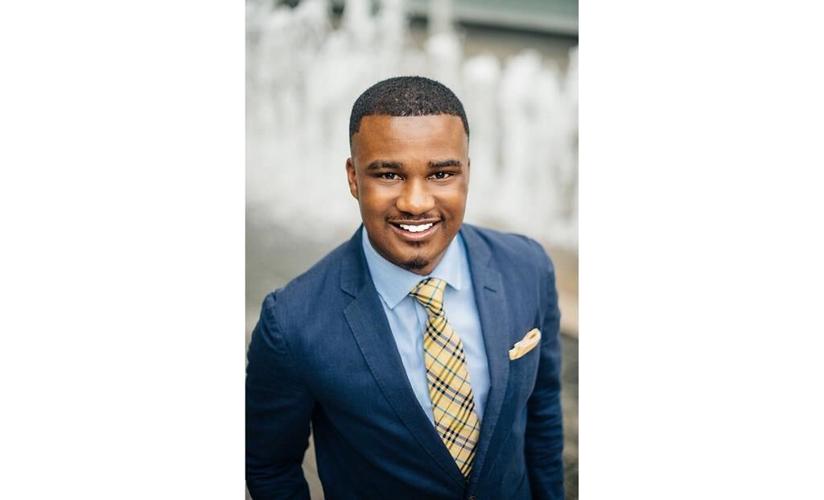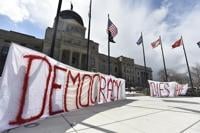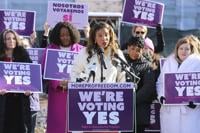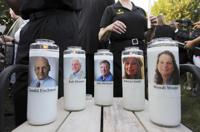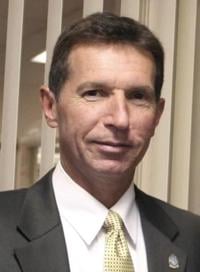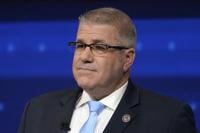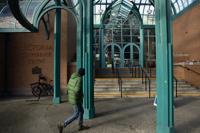BATON ROUGE, La. (AP) — Newcomer Davante Lewis, a Democrat backed by an environmental political action committee, easily won Saturday’s runoff for a seat on Louisiana’s Public Service Commission — an obscure regulatory body that has received national attention from media, celebrities, climate change activists and major public utility companies.
The 30-year-old progressive policy advocate received 59% of the vote to defeat incumbent Lambert Boissiere III, who received 41% with all participating precincts reporting.
Boissiere held a seat for nearly 18 years on the five-member commission, which regulates the state's public utility companies and energy sector and sets electric rates, among other oversight powers.
“Tonight, we have begun a new chapter for Louisiana,” Lewis said in a statement. “Tonight, the people of Louisiana start taking our power back. Tonight, Louisiana has a Public Service Commissioner who’s unafraid to hold Entergy accountable, because I owe this victory to the people of Louisiana and their commitment to a brighter, cleaner, and 100% renewable future.”
The Associated Press could not immediately reach Boissiere or a campaign representative for comment.
The multiparish election, covering an area stretching from Baton Rouge to New Orleans, saw hundreds of thousands of dollars poured into the race by major utility companies and outside political action committees.
Environmentalists have become increasingly focused on the commission in a state with a front-row seat to the effects of climate change and where tens of thousands of jobs are tied to the oil and gas industry. Even Hollywood paid attention to the runoff between the two Democrats, with “Avengers” star Mark Ruffalo chiming in on social media with his support for Lewis.
Lewis noted multiple priorities, including expanding renewable energy, strengthening Louisiana’s vulnerable power grid and tackling the state’s ballooning electricity bills that are largely a result of high prices for natural gas, a key fuel for Louisiana utilities.
“We rose up and said Louisiana is ready for a new energy future. One in which every Louisianian can count on clean air and water, a warm house in the winter, a cool horse in the summer and utility bills that don’t break the bank,” Lewis said.
Although Lewis and Boissiere are members of the same political party, money poured into the race and certain contributors became major points of contention.
Keep the Lights On, an affiliate of the Environmental Defense Fund, released attack ads against Boissiere for accepting campaign contributions from utility companies regulated by the commission including Entergy, Louisiana’s largest power company. While these types of contributions are legal in Louisiana, they have been scrutinized over the years.
“The monopoly utility companies, oil, gas and petrochemical industries and political establishment who tried to sink our movement will not disappear because of this election," Lewis said following the election. "We must continue to root out corruption and unrig the system, to hold me and my fellow commissioners accountable, and to advocate for bold, new solutions.”
The commission has for years resisted calls to mandate power companies get a certain share of their power from renewables, but activists are hopeful their stance will change, The Advocate reported.
The commission consists of three Republicans and two Democrats, including Lewis, in a reliably red state.
Louisiana has been riddled by destructive hurricanes making landfall more frequently while coastal areas have been eaten away by erosion, subsidence and rising sea levels. The Mississippi River recently reached record low water levels.
The state also abuts the Gulf of Mexico and has tens of thousands of jobs tied to the oil and gas industry. In 2021, Louisiana ranked third among the top natural gas-producing states, accounting for nearly 10% of the United States’ natural gas production that year, behind only Texas and Pennsylvania.
Voters on Saturday also approved all three constitutional amendments on the ballot, banning non-United States citizens from registering to vote or casting ballots in Louisiana — closing a possible loophole — and giving the state Senate the opportunity to weigh in on the governor’s appointments to two oversight panels.

